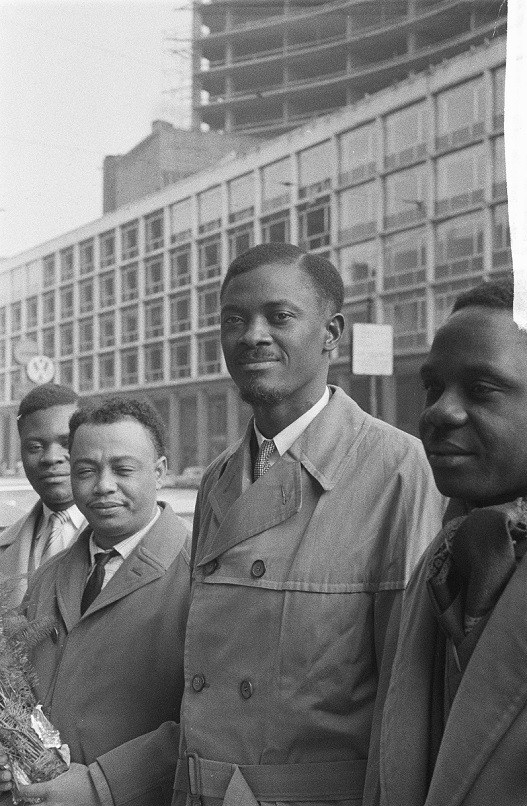Patrice Émery Lumumba, the first democratically elected Prime Minister of the present-day Democratic Republic of the Congo, was assassinated 59 years ago, on 17 January 1961. He should be remembered as the symbol of a country strangled at birth.
On 30 June 1960, two speakers were scheduled to mark the independence of the Republic of Congo-Léopoldville (present-day Democratic Republic of the Congo) from Belgium: Baudouin, King of the Belgians, and Joseph Kasa-Vubu, first President of the nascent republic.
Dressed in a white uniform, his posture upright and glance defiant, Baudouin announced that independence “constitutes the culmination of the work conceived by Leopold II,” the tyrannical monarch widely considered responsible for the deaths of millions.
Leopold, proclaimed Baudouin, sole proprietor of the Congo Free State from 1885 to 1908, enslaver of an entire population, had come to the Congolese “not as conqueror, but civilisateur.” Baudouin’s advice to the new leaders of the Congo? “Do not replace Belgian institutions unless you are sure you can do better.”
Kasa-Vubu’s response was conciliatory: instead of rejecting this shameless paternalism, the President thanked the King for his presence, attesting as it did once more to his “concern” for peoples he had “loved and protected.”
Then Patrice Émery Lumumba, the newly elected Prime Minister, ascended the podium. Not scheduled to speak but incensed by the King’s brazenness, Lumumba addressed the audience. The 30th of June 1960, said Lumumba, should be remembered as an illustrious day, to be engraved irrevocably in the hearts of the Congolese.
But too recent were the wounds of colonialism, too great the pain inflicted: “Who can eventually forget the shootings which cost the lives of so many of our brothers, the prisons into which were brutally thrown those who no longer wished to submit to the regime of injustice, oppression and exploitation?” Lumumba spoke for millions, living and dead.
The euphoria of independence was short-lived: five days later, a mutiny broke out among Congolese officers against the continuing authority of Belgian Force Publique commanders, and on 10 July, Belgian soldiers landed at N’djili airport. Deployed on the pretext of protecting Belgian citizens, the troops took to supporting the fledgling secessions in the mineral-rich provinces of Katanga and South Kasai.
His newly independent country falling apart, Lumumba first approached the United States for help, but the Eisenhower administration, fearful of a ‘Congolese Castro,’ refused; when, exasperated, Lumumba turned to the Soviet Union, Washington saw its views confirmed. Caught in the crossfire of the Cold War, faced with a colonial master unwilling to cede control over the Congo’s vast natural resources, Lumumba’s fate was sealed.
In December 1960, he was arrested by forces loyal to CIA-backed Joseph-Désiré Mobutu, his former friend and fellow attendee of the Brussels Round Table negotiations on independence (Mobutu’s tyrannical rule over the Congo, which he renamed Zaire, would last three decades).
Lumumba was flown to Katanga, where he was tortured and executed. A Belgian officer was present at his assassination, and it was a Belgian policeman who disposed of his body.
In death, Patrice Lumumba became a myth, a martyr, larger than life: Malcolm X considered him “the greatest black man who ever walked the African continent;” Jean-Paul Sartre put him on par with Frantz Fanon and his Wretched of the Earth; he was immortalized in Raoul Peck’s Death of a Prophet; his 30 June address is still widely read today, and his statute towers over Kinshasa.
Yet, does memory divorce history? Patrice Lumumba served as Prime Minister of the Congo for a little less than six months; he was only 35 when he died. Those who knew him lamented his lack of patience and impulsiveness; he tolerated little dissent. He hastily pushed for independence despite evident obstacles (in 1960, there were only about a dozen Congolese university graduates), and later refused to compromise with President Kasa-Vubu.
For Brian Urquhart, UN representative in the Congo, “he was oblivious to the human consequences of his actions.” Had he had “the time and the power,” mused Urquhart in his 'character sketch' for the United Nations, “he might well have become the worst of tyrants.”
Lumumba the politician may have been flawed – but his fate stands for the tragedy of a country. To this day, the Democratic Republic of the Congo is ravaged by poverty and civil war (the armed conflict which followed the overthrow of Mobutu in 1997, dubbed the ‘African world war,’ cost the lives of an estimated 3–5 million).
With an area the size of Western Europe and unparalleled in its wealth of natural resources, it should be one of the richest countries in the world. Like its Prime Minister, the Congo never stood a chance: it was strangled at birth, in the early days of independence.
It is Lumumba’s ideas that will endure. He experienced firsthand the fundamental assault on human dignity that is colonial oppression. He understood that decolonisation is not accomplished by means of grand ceremonies or the holding of elections; it must be total. He knew that self-determination is more than the right to be ruled by one of your kind; it means freedom from fear and shared prosperity.
Lumumba wrote in his last letter to his wife: “The day will come when history will speak. But it will not be the history which will be taught in Brussels, Paris, Washington or the United Nations. Africa will write its own history and in both north and south it will be a history of glory and dignity.”
By Anna-Christina Schmidl


